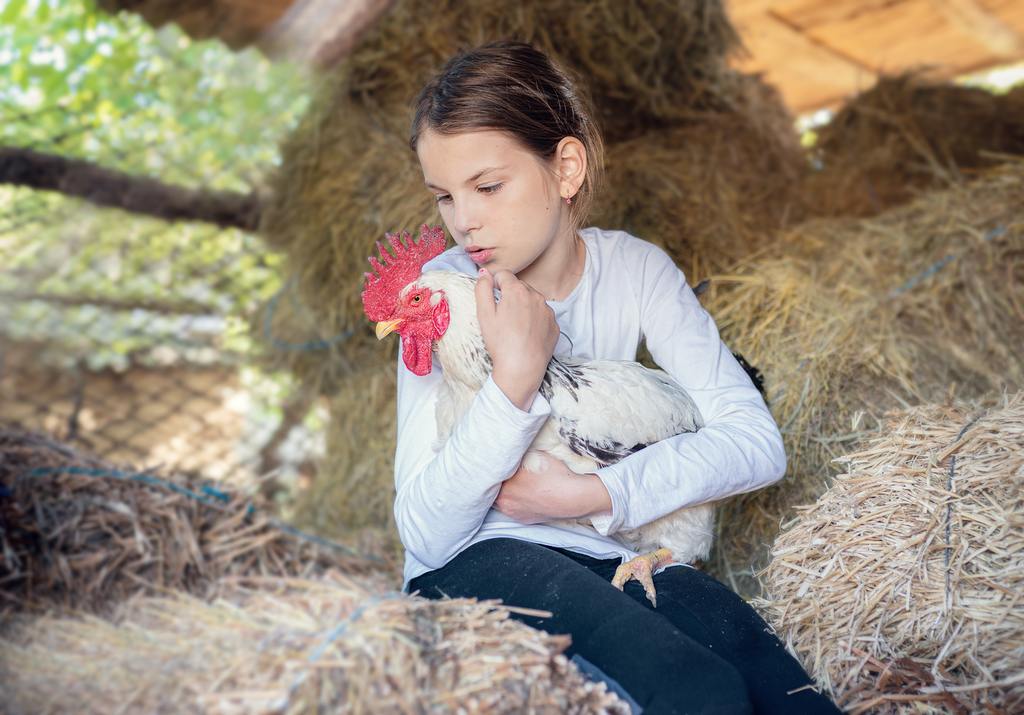
Whips, Cockfights, and Racing’s Selective Outrage
I have always enjoyed, poor choice of words here, starting an article with a quote or two I like.
“You’ve heard of Triple A, I have four A’s, Animal Abuse, Animal Cruelty, Animal Torture, Animal Abandonment, it’s not in my dnA to sit down and shut up for any of them.”
“The only thing necessary for the triumph of evil is for good men to do nothing.” Not sure, widely attributed to Edmund Burke
“Think occasionally of the suffering of which you spare yourself the sight,” Albert Schweitzer
We get it from the CAW’s, we get it from the stewards, we get it from the tracks, sometimes enough is enough.
Every so often, something bubbles up on social media that forces you to ask what this sport really stands for.
Lately, for me, it’s been an unverified video floating around X that people claim shows a top jockey at a cockfight, not just hanging in the background, but apparently right in the middle of the action, working the bets like he’s done it more than once. I don’t know if the video is real, I don’t know if it’s him, or who it is, and I’m not here to judge or convict anybody off a grainy cell phone clip. Personally, I hope it is a deepfake.
But I don’t need the video to be real to make this point:
If a leading jockey in the United States, any of them, is participating in cockfighting in 2025, that is not a bad look. It’s a moral, ethical, and legal disaster—for them and for horse racing.
And pretending otherwise exposes how selective and performative this industry’s “integrity” and “animal welfare” talk really is.
First, the law: cockfighting is illegal everywhere in the USA, including Puerto Rico
Let’s get rid of the “maybe it’s legal there” nonsense right now.
Under federal law—7 U.S.C. 2156, part of the Animal Welfare Act—it’s illegal to sponsor, exhibit, buy, sell, transport, or train animals for fighting. It’s also illegal simply to attend an animal fighting venture. Congress tightened the screws in 2014 to make attending a crime on its own, with extra penalties for bringing minors.
That applies to every U.S. jurisdiction, including Puerto Rico. Over the years, Congress eliminated the carve-outs and exemptions that used to exist for territories. Federal courts have already upheld that ban against challenges from Puerto Rican cockfighting interests, and the First Circuit has been very clear that Puerto Rico is treated as a “state” under this section of the Animal Welfare Act.
Puerto Rico tried to fight it. Their local “Gamecocks Act” literally calls cockfighting a “cultural right of all Puerto Ricans” under local law. (Supreme Court) Cockfighting promoters and allies sued, arguing Congress couldn’t criminalize something they viewed as tradition. The Supreme Court refused to even hear the challenge, leaving the federal ban in place.
So what does that tell you about Puerto Rico’s feelings about cockfighting? Simple:
- Culturally and politically, a lot of people there still embrace it and want to preserve it as tradition.
- Legally, the federal government—and the courts—have said, too bad, it’s cruelty, and it’s banned, period.
You’ve got a jurisdiction where the local law calls it a cultural right and the federal law calls it a crime. That tension is real, and some local politicians still flirt with ignoring the federal prohibition. (Center for a Humane Economy)
But for anybody licensed to ride in the United States, the bottom line is not complicated:
Cockfighting is illegal under federal law everywhere in the U.S., including Puerto Rico. Even being there as a spectator is a crime.
And that’s before we even touch the moral side. Furthermore, does it even matter if it is legal?
Animal cruelty isn’t “off-duty behavior” when your license is built on animal care
A jockey’s entire profession and license are grounded in one premise: you are entrusted with the care and control of a sentient animal in a violent, dangerous sport. We ask riders to make split-second decisions in traffic at 40 mph. We fine them, suspend them, and drag them through the stewards’ room over one extra whip strike or drifting a path too many in the lane.
We write “for the good of the horse” on everything.
Now line that up against cockfighting.
Cockfights are not “tough” or “old school.” They’re birds with knives and gaffs strapped to their legs, maiming and killing each other for human entertainment and gambling. That’s not my opinion; that’s how the law treats it. In immigration law, a conviction under the federal animal fighting statute has been classified as a crime involving moral turpitude—legalese for “serious, inherently depraved conduct.”
So let’s be honest:
- If a jockey hits a horse once too many with an over-regulated foam whip, that’s a fine and a short suspension.
- If a jockey knowingly attends or participates in a cockfight, that’s criminal animal cruelty and illegal gambling.
Whip violations are infractions inside a regulated sport. Cockfighting is outside the law entirely.
You can’t be “all about the horse” and shrug at the rooster. Our job isn’t species-selective empathy. It’s an animal-welfare mindset. Once you normalize animal torture in one context, don’t tell me it doesn’t bleed over into how you view animals in another.
The hypocrisy: we police optics when they’re easy, and ignore them when they’re hard
Racing loves clean, low-risk optics:
- We’ll throw the book at a jockey for one over the whip limit.
- We’ll hold stewards’ hearings over a no brainer DQ.
- We’ll deny stalls and blacklist people we decide are “undesirable” because they ruffled the wrong feathers or asked the wrong questions.
But where is that same energy when it comes to something like cockfighting?
If we’re prepared to call someone “detrimental to the best interests of racing” over a tweet, what do we call someone credibly tied to an animal fighting venture? If we’ll deny a trainer stalls over who owns their horses or what they say about regulators, what do we do with a licensee who treats animal cruelty as a night out?
We can’t have it both ways:
- On-track: “We care so much about animal welfare that we’ll micromanage whip use down to the last tap.”
- Off-track: “Well, maybe cockfighting is culture; maybe the video is old; maybe you’re overreacting; let’s not rush.” GTFOH
Either animal welfare is a principle or it’s a PR slogan.
Illegal gambling and integrity: not a small side note
Racing doesn’t exist without gambling, but it only survives if the gambling is regulated and trustworthy.
Now imagine—purely as a hypothetical—a top jockey:
- Standing in an illegal cockfighting pit,
- Handling cash,
- Running bets informally like it’s a private book.
That’s not just “bad optics.” That’s a licensed wagering participant showing they’re comfortable operating in an unregulated, illegal gambling environment built on animal cruelty.
If you’re an owner, do you want that guy making split-second decisions that impact your six-figure horse and your livelihood? If you’re a bettor, how do you feel about trusting the judgment and integrity of someone who treats underground animal fights as just another night at the office?
We suspend people for less under the banner of “protecting the integrity of the wagering product.”
Due process matters. So does drawing a line.
I am not saying this or that jockey is guilty of anything based on a video I didn’t shoot, didn’t authenticate, and didn’t see in a courtroom. That’s not how this should work. We know deepfakes exist. We know context can be twisted. We also know people lie.
So what should the industry do if a video like this surfaces and appears credible?
- Acknowledge it – Not “no comment,” not silence. A simple:
“There is an unverified video circulating that appears to show a licensed participant at an illegal cockfight. We take animal cruelty and illegal gambling seriously and are reviewing the matter.” - Investigate quickly and professionally – Subpoena the original file if needed. Talk to the rider. Talk to other participants if identifiable. Use forensic experts if there’s a deepfake question.
- Tie it to clear, written standards – Racing jurisdictions should have explicit language that involvement in animal fighting ventures—sponsoring, attending, or participating—constitutes conduct detrimental to racing and grounds for discipline, up to and including loss of license.
- Be transparent with the outcome – If it’s fake, you say so just as publicly as the rumor spread. If it’s real, you explain the penalty and why you imposed it.
Due process isn’t a shield to hide behind. It’s the path to getting it right. But “due process” is not the same thing as never touching it because it’s uncomfortable.
You can’t claim the moral high ground and leave this alone
If racing wants the public to buy the idea that we love the horse, protect the horse, and regulate everything “for the welfare of the animal,” then we don’t get to compartmentalize animal cruelty.
You can’t:
- Pound your chest about whip rules,
- Confiscate crops at the jock’s room door,
- Fine riders thousands for an extra strike,
…and then turn your head if a top licensee is knee-deep in a blood sport that Congress and federal courts have repeatedly defined as criminal, cruel, and contrary to basic standards of decency.
We ask fans, owners, bettors, and even politicians to trust us when we say the game is cleaner now, safer now, more humane now. That trust is fragile. A video of a major racing figure at a cockfight—if it’s real and ignored—does more damage to racing’s credibility than a dozen press releases can repair.
Where I land
I’m not here to make friends nor do I care even a little what anyone outside my small circle thinks of me. I do care about animals and I do say what I mean and mean what I say. Anyone who is okay with cockfighting, dog fighting or bull fighting is not okay with me.
So here’s where I land:
- If the video is fake or misrepresented, that needs to be said loudly, clearly, and with evidence. A rider falsely tied to this deserves to be cleared.
- If it’s real, and a leading jockey is attending and working the bets at a cockfight in 2025, then we have a very simple, non-negotiable problem: You cannot be trusted to represent a sport built on animals if you’re voluntarily participating in an illegal animal-torture and gambling operation on your own time.
Whip strikes are one thing. Trip trouble is one thing. Questionable rides are one thing. We can argue those all day.
Cockfighting is not a gray area. It’s illegal. It’s cruel. And for anyone whose career is built on “love of the horse” to be anywhere near it—on camera, off camera, in person, running bets, or just watching—is, at best, a horrible look and, at worst, a disqualifying window into who we hand the reins to every day.
There are places like the Dominican Republic where cockfighting is indeed legal, and they even have arenas to host it. That would eliminate the illegal gambling aspect but does little to change the torturous nature of the barbaric act itself. It does less to change the character of anyone engaged in or condoning the practice.
I hope the video is a deepfake. I hope it’s not real. But if it is, and racing shrugs, then we’ve told the world exactly what all our “animal welfare” talk is really worth. Absolutely nothing. Not a cent!
Now don’t go feeling all bad about it not being about the cock, it’s not about the lobsters either. How many have we eaten right after those big scores we love to make.




